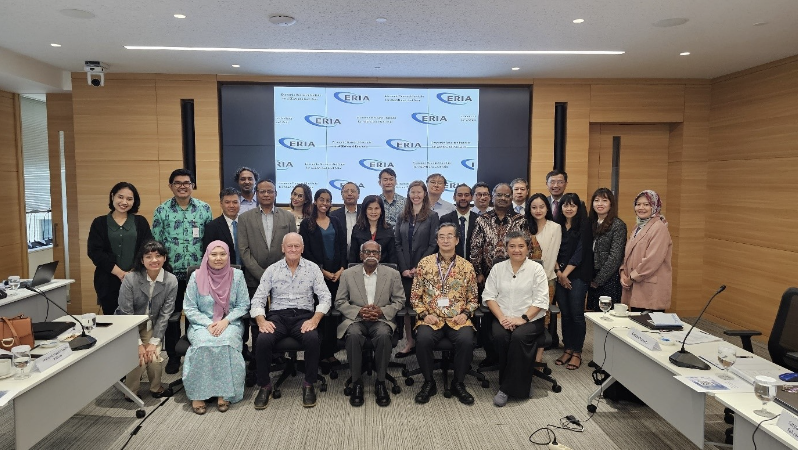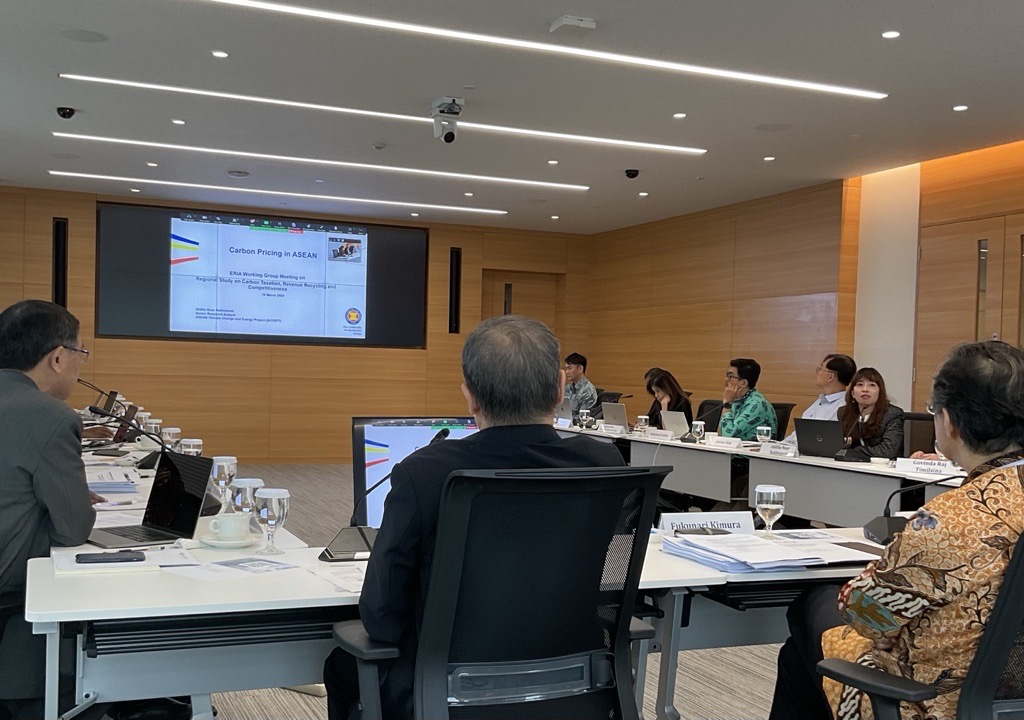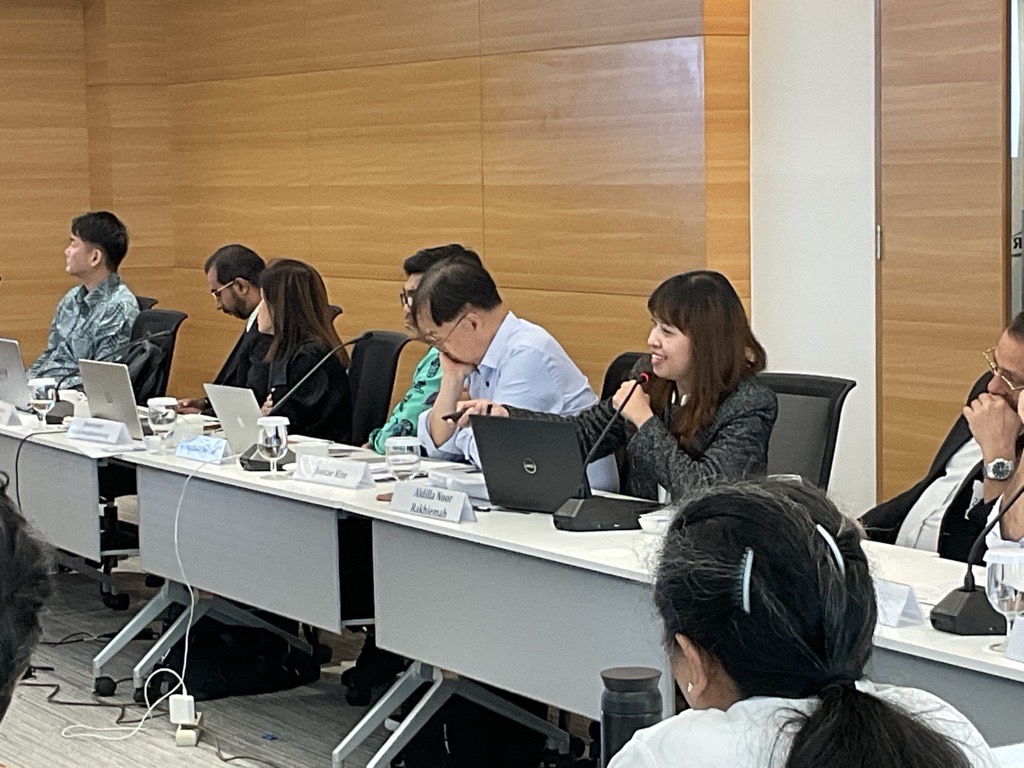i
i
Jakarta, 10-11 March 2024

Photo 1. All participants of Working Group on Carbon Pricing, Revenue Recycling, and Competitiveness in ASEAN and East Asia
Carbon pricing has been globally considered as a crucial tool to tackle climate change. Therefore, institutions are actively conducting insightful discussions to analyse the key challenges and best practices to adapt carbon pricing scheme in a regional level. In this opportunity, Economic Research Institute for ASEAN and East Asia (ERIA) hosted a Working Group on Carbon Pricing, Revenue Recycling, and Competitiveness in ASEAN and East Asia where the ASEAN Climate Change and Energy Project (ACCEPT) was invited to share ASEAN’s insights and progress related to the carbon pricing scheme.
The discussion was attended by various stakeholders and ASEAN’s representatives to explore more about the potential of carbon pricing implementation in the region. Held in the ERIA Annex Office Jakarta, the sessions aim to analyse the key findings of carbon taxation, revenue recycling, and competitiveness. Moreover, the discussion also supported by the ERIA survey on willingness to pay for a carbon price and shaping regional strategies.

Photo 2. Aldilla Rakhiemah during her presentation session on regional analysis of carbon pricing in ASEAN
Aldilla Noor Rakhiemah, Senior Research Analyst of ACCEPT II was given the opportunity to share findings based on ASEAN’s overview. She mentioned the crucial role of ASEAN Plan of Action for Energy Cooperation (APAEC) in guiding ASEAN decarbonisation journey particularly in the energy sector. Aldilla began the presentation through the regional energy landscape, highlighting the 7th ASEAN Energy Outlook finding on the increasing energy demand by approximately 30% by 2030 and will escalate by 170% by 2050. With the rising energy demand and the reliance on fossil fuel, it is predicted that GHG emissions are projected to reach 2,471 MtCO2-eq by 2025, with electricity and transportation contributing the highest share through 2050. Despite the rising amount of the estimated GHG emissions, this is where carbon pricing plays a significant role in reducing the greenhouse gas emissions.
Aldilla stated that in ASEAN context, carbon pricing is seen as a key instrument for climate change mitigation. As of now, all ASEAN Member States (AMS) are preparing for more targeted carbon pricing policies and its related regulation such as carbon tax, emissions trading system, and carbon credit. On the other hand, carbon market analysis has been involving in AMS’s climate-related activities which are predominantly voluntary. However, the efforts highlighted ASEAN’s strong commitment to apply various approaches regarding carbon management and climate change mitigation.

Photo 2. Discussion session
Furthermore, Aldilla emphasised the interlinked between carbon pricing and Carbon Border Adjustment Mechanism (CBAM) implementation by the EU. The statement is supported by the results of ACE’s survey on ASEAN Readiness for CBAM that is conducted by ACCEPT where both carbon pricing and CBAM is complementary instrument in the policy-making process.
At the end of the session, Aldilla believes that the carbon pricing policies must be followed by a couple of capacity building and knowledge dissemination to give deeper understanding for targeted industries or stakeholders that will be impacted by the scheme.
As a way forward, the development and implementation of carbon pricing policies should be accelerated. This effort should also be followed by fostering renewable energy and technological innovation through multisectoral collaboration. Furthermore, stakeholder engagement also highly necessary to maintain the monitoring and evaluation process within carbon pricing implementation.
(IP)
Join our ASEAN Researchers Network on Climate Change (ARNECC) by registering yourself here. Become a part of our collaborative efforts to address pressing climate challenges and shape a sustainable future.
Detailed information on ACCEPT II can be found at https://accept.aseanenergy.org/
We welcome any future collaboration, please feel free to contact us at [email protected]